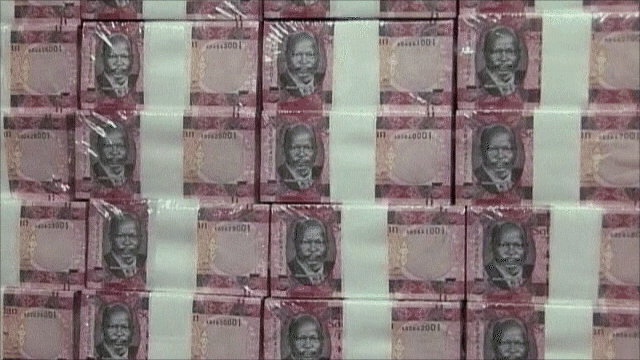This report is the first of an exclusive series, ‘War Economy’, which focuses on the economic situation in South Sudan.
South Sudanese officials today denied that the central bank is secretly printing huge amounts of money to help cover wartime budget deficits.
Undersecretary at the Ministry of Finance and Economic Planning Salvatore Garang Mabiordit vehemently denied that the Central Bank has been printing or has any plans to print money, asserting that such a move would require parliamentary approval.
A top UN official in South Sudan warned this week that printing money could lead to “hyperinflation,” claiming that the government had resorted to the “old trick” of printing money since December.
Mabiordit called on the public to disregard rumors of this kind, stressing, “There are no such plans by the bank or the government requiring printing more money.”
“If there is a plan to print money, it would require the approval of the national legislative assembly and this means there will have to be a debate… Printing is connected to the economy of the country and the lives of the people. Therefore it can never be done secretly,” he said.
Separately, John Dor Majok, 1st Deputy Governor for Banking Supervision Research and Statistics at the Central Bank, denied that the bank was resorting to ‘inflationary financing’, ‘printing excess money’.
The black market rate for US dollars in South Sudan dropped to a record low this month. Many businesses have been facing an acute shortage of dollars, unable to exchange for dollars at commercial banks or forex bureaus.
Although this would suggest a glut of South Sudanese pounds, the Central Bank official denied that the money supply has been inflated, claiming that government has enough dollars in reserve to bring inflation under control.
John Dor Majok stated that the dollar amounts injected from the Central Bank reserves into the market currently are slightly above target, and that economic volatility would be restrained.




